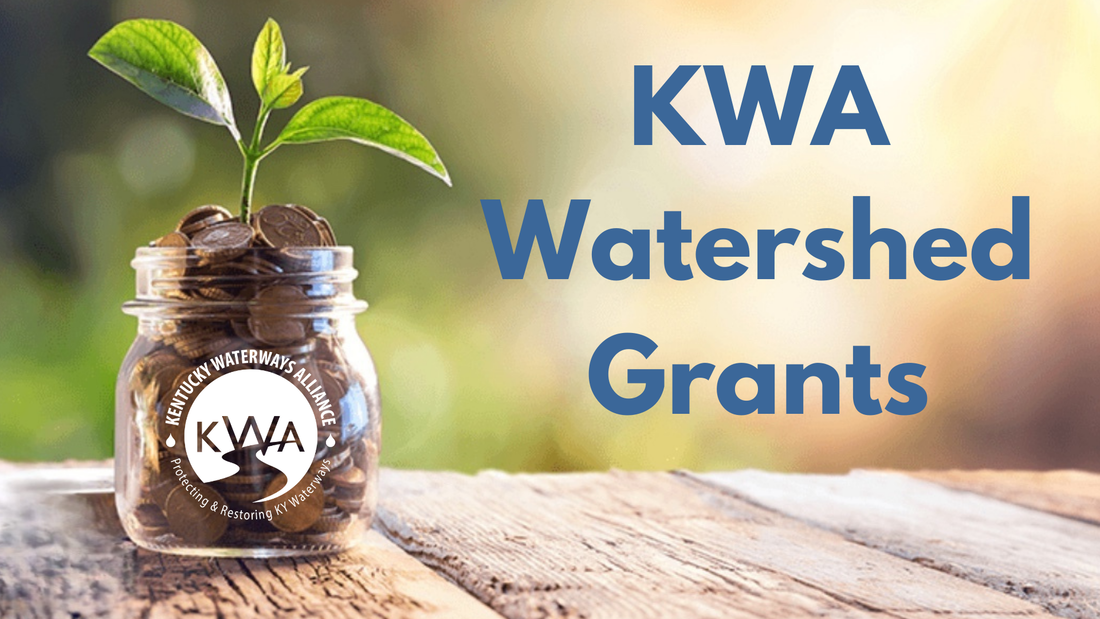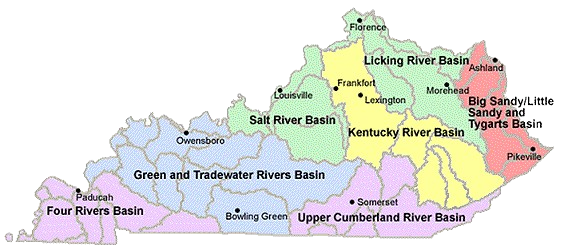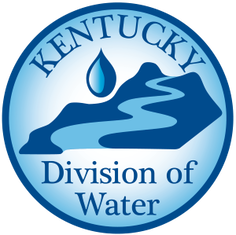|
KWA is excited to announce the recipients of our Watershed Seed Grants! This pilot program is providing grant funding assistance in all of Kentucky’s seven major river basins to organizations that are undertaking projects addressing nonpoint source pollution to protect and restore their watersheds.
Basin: Licking River Organization: Kentucky Watershed Watch (KyWW) Project: Water Monitoring Support Hub KyWW is developing multiple water sampling Support Hubs in the Licking River basin. These will enable volunteers to check out loaned sampling kits, receive assistance with identification of potential sampling locations, incubate R-cards overnight for E. coli analysis, use computers or Wi-Fi to enter sample results in the KyWW database, and participate in a variety of networking and training events. The development of regional Support Hubs is expected to increase the number of volunteers and locations, consistency of sample collection, and the ability to identify locations of concern. The Support Hubs will limit the driving distance for volunteers and improve access to participation for low-income and rural volunteers. Basin: Kentucky River Organization: Red Bird Mission Project: Septic Pump Out This project supports 13 septic tank pump outs and watershed education in Clay, Bell, and Leslie Counties for residents who live near a creek or river. Water quality is a significant issue in this community with the high prevalence of straight piping by homeowners and no municipal sewer systems, all of which are polluting streams and rivers that the community utilizes for fishing, swimming, drinking water, and baptisms. This project will decrease E. coli pollution from the overfull septic tanks that are overflowing into our watersheds. This grant will provide community education on the care and maintenance of septic tanks, promote sustainability of existing septic systems, and decrease the number of backed up or leaking septic tanks that are overdue for pumping. Basin: Green River Organization: Friends of Barren River Lake and Park Project: Lakeshore Clean Up Day This project supports the expansion of Lakeshore Clean Up Day, which was greatly diminished during Covid. Before Covid the cleanups removed an average of 8.85 tons of trash and 69 tires with the help of 453 volunteers a year. Since Covid the average has fallen to removing .83 tons of trash and 13 tires with the help of 127 volunteers a year. The 2024 Lakeshore Clean Up Day has a goal to remove at least 4 tons of trash with the help of 400 volunteers. The project focuses on removing the accumulation of trash following summer lake use by recreational boaters, fishing enthusiasts, and beachgoers. It will extend the focus of clean water stewardship throughout the year. Barren River Lake accumulates garbage from several tributaries. Flooding generally occurs in the spring, and as waters recede, it acts as a dragnet, pulling anything that settled well beyond the summer pool levels. The cleanup will prevent garbage floating downstream the following spring. Basin: Four Rivers Organization: Jackson Purchase Foundation (JPF) Project: Shoreline Stabilization This project includes planting 400 Cyprus trees and plugging at least one acre of river cane at Land Between the Lakes and Clark River locations, and the establishment of a river cane patch in Race Track Hollow. This project is part of a larger initiative to address lakeshore stabilization at Lake Barkley from Davenport Bay to the Eddyville Ferry that includes planting 10,000 cypress trees and the establishment of rivercane at key locations to reduce severe shoreline erosion taking place due to the wave action within the lake system. Wind, boating, and water fluctuation of these impoundments create an issue of bank degeneration leading to immense sediment deposits into our waterways. These native plants and trees have historically been present along these waterways and will also create a filtering system for agricultural nutrient runoff. Basin: Salt River Organization: Louisville Nature Center Project: Beargrass Slow Flow and NPS Reduction This project will improve watershed conditions in the South Fork of Beargrass Creek by slowing the flow of water during heavy rain events and filtering out nonpoint source pollutants before the water reaches the Creek located in the Beargrass Creek State Nature Preserve. The project site lies on and below a slope where runoff from surrounding roadways, parking lots, and mowed turf has caused significant erosion and degraded conditions, as rainwater and NPS pollution flow rapidly downhill, through the preserve’s woodlands, and ultimately into the Creek. Funding will support the construction of 6-8 hand-built structures within and along the drainage streambed and the creation of a 0.25-acre wetland that includes native plants and grass seed. Basin: Big Sandy & Tygarts River Organization: Pike County Clean Community Board Project: Levisa Fork Tire Removal This project supports the expansion of a tire removal project that began in 2023 to address the removal of an estimated 5000 waste tires that have been dumped over the years into the river. This project will target an eight-mile section of Levisa Fork located in the City of Pikeville. This section of river includes five river boat ramp access areas to promote adventure tourism. When tires deteriorate, they release harmful chemicals, microplastics, and heavy metal into water. Removal of this unnatural stream substrate will allow the stream bed to return to its natural gravel and stone riverbed, which will positively impact the ecosystem of aquatic animals and the natural diversity of plant life. Basin: Upper Cumberland River Organization: Red Bird Mission Project: Septic Pump Out This project supports 13 septic tank pump outs and watershed education in the Upper Cumberland River area for residents who live near a creek or river. Water quality is a significant issue in this community with the high prevalence of straight piping by homeowners and no municipal sewer systems, all of which are polluting streams and rivers that the community utilizes for fishing, swimming, drinking water, and baptisms. This project will decrease E. coli pollution from the overfull septic tanks that are overflowing into our watersheds. This grant will provide community education on the care and maintenance of septic tanks, promote sustainability of existing septic systems, and decrease the number of backed up or leaking septic tanks that are overdue for pumping. This work was funded in part by a grant from the U.S. Environmental Protection Agency under §319(h) of the Clean Water Act.
0 Comments
2024-2026 Watershed Grants Guidelines
Kentucky Waterways Alliance (KWA) is pleased to announce our 2024-2026 watershed grants. This pilot program will provide seed grant funding assistance in all of Kentucky’s seven major river basins to organizations that are interested in doing their part to protect and restore their rivers, streams, and watersheds. Grant funding will be awarded to at least one project per river basin. Projects must address nonpoint source (NPS) pollution, which includes pollution that cannot be directly attributed to a distinct source. NPS pollution is unlike Point Source Pollution, which occurs when pollutants are discharged from distinct, confined conveyances, such as a pipe, well or even a boat. NPS pollution is caused by rainfall or snowmelt moving over and through the ground. As the runoff moves, it picks up and carries away natural and human-made pollutants, finally depositing them into lakes, rivers, wetlands, coastal waters and ground waters (EPA). Some NPS pollutants include oil and gas on roads and driveways, fertilizers on lawns, pesticides on food crops, soap from car washes, and dirt from construction sites. NPS pollution can also come from cattle in streams, failing septic systems, or collapsing stream banks. As these different pollutants build up in the water, our water quality declines. A decline in water quality is bad not only for the plants and animals that live in the water, but also for our drinking water. KWA grant funding can support stream cleanups, tree plantings, educational signage, water festivals, water quality sampling, rain gardens, rain barrels, and many more beneficial activities and best management practices. These are examples but by no means an exhaustive list. KWA is committed to supporting and empowering underserved communities and will utilize the EPA EJ screening tool in the grant award selection process. Environmental justice (EJ) is the fair treatment and meaningful involvement of all people regardless of race, color, national origin, or income with respect to the development, implementation and enforcement of environmental laws, regulations and policies. *To learn more about the EPA’s environmental justice information, see this link. If you are interested in addressing NPS Pollution in your area, please consider applying for this grant opportunity:
The grant application and grant guidelines can be found by clicking on the "Download" buttons at the top of this webpage. Applicants are strongly encouraged to contact Laura Gregory to discuss your project or you can join KWA’s optional virtual seed grant workshop. Questions? Please contact Laura Gregory, Kentucky Waterways Alliance’s Watershed Program Director, at [email protected] This work was funded in part by a grant from the U.S. Environmental Protection Agency under §319(h) of the Clean Water Act. |



